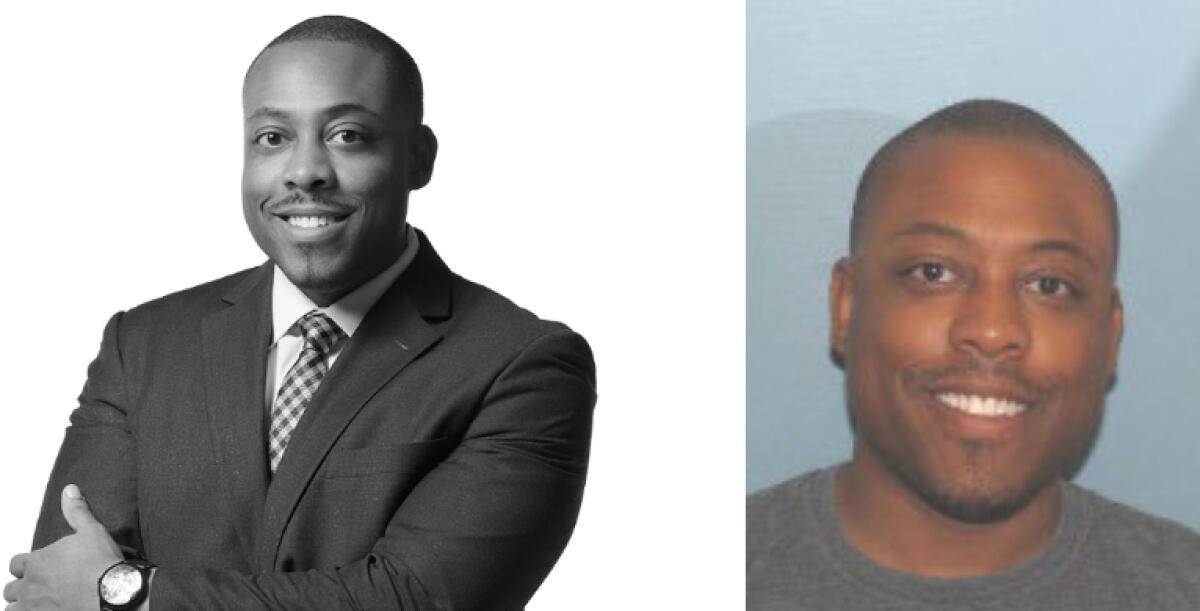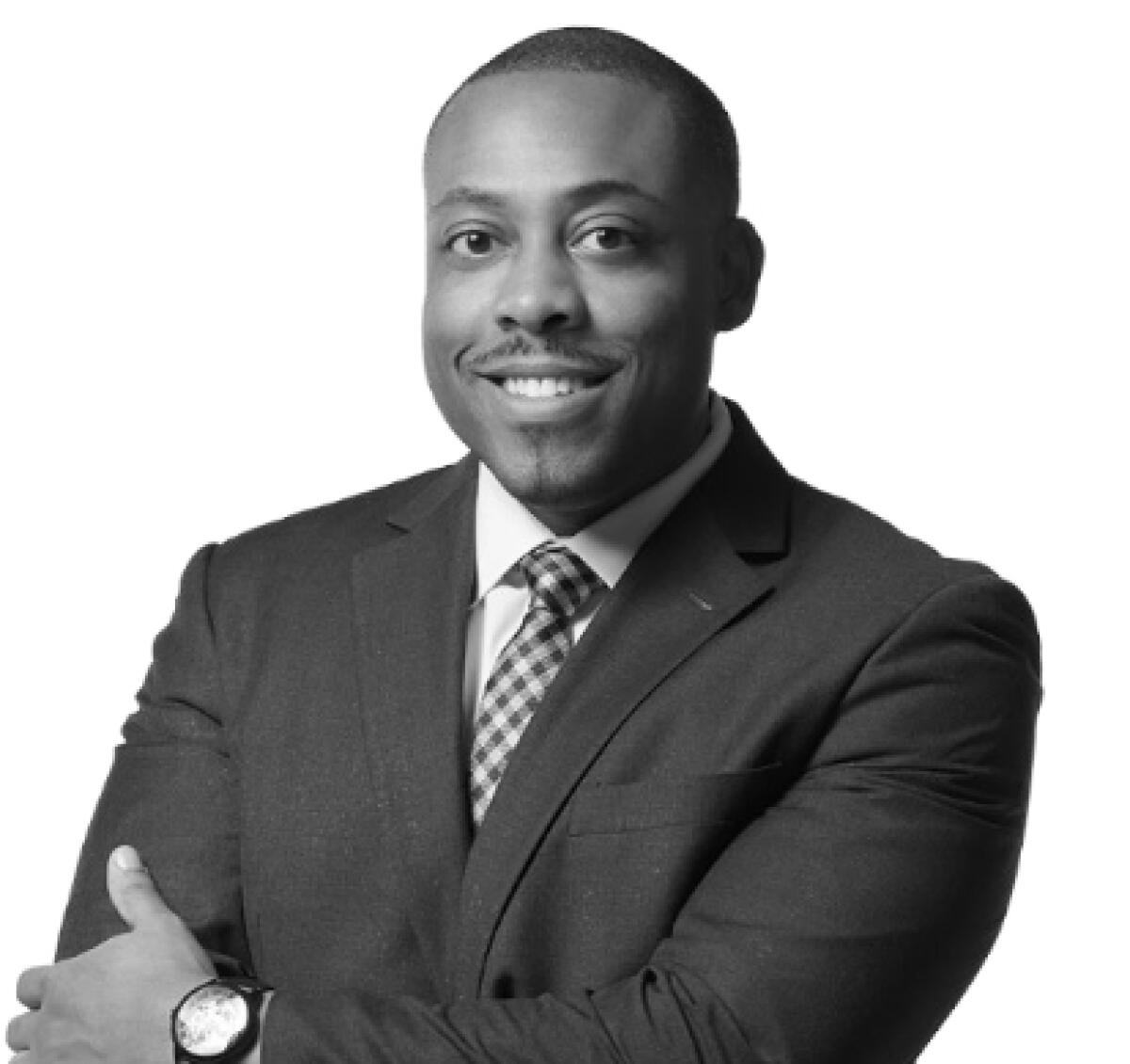Disbarred in Ohio, he tricked a California law firm into a $250,000 job offer

When he applied for a job at a California law firm last September, he identified himself as Christopher “Rich” Miller-Williams and claimed to be an ex-Marine who attended the University of Michigan School of Law.
He said he had played football at the University of Michigan, worked as in-house counsel at Bristol Myers Squibb, a biopharmaceutical company, and was licensed to practice law in New York and Washington, D.C.
Impressed, the Irvine firm hired him as an attorney to the tune of $250,000 a year. The only problem? None of it was real.
The month after he was hired, federal agents arrested Miller-Williams under his real name: Richard Louis Crosby III.
This week, Crosby, of Mason, Ohio, pleaded guilty in Cincinnati to three counts of Social Security number fraud tied to false identities he used to obtain employment with at least seven law firms, including three in California, according to the U.S. attorney’s office for the Southern District of Ohio. The office did not provide the names of the hiring law firms.
Throughout his scheme, prosecutors say, Crosby used identifying information belonging to his elderly father, his girlfriend, a dead man and others. Between 2021 and 2023, operating mostly from the Cincinnati area, he broke the law so he could practice law in three states and the District of Columbia.

Crosby’s federal public defender did not immediately respond to a request for comment.
According to a plea agreement Crosby signed last month, the 37-year-old actually graduated from the University of Dayton School of Law and was admitted to the Ohio bar in May 2014.
The Cincinnati Bar Assn. on Nov. 6, 2020, filed a complaint against Crosby, alleging he had violated numerous rules of professional conduct while employed at a law firm in the city, according to the plea agreement.
In June and November 2021, officials say, Crosby was indicted and charged with crimes related to stealing client funds. After the indictments, the U.S. District Court for the Southern District of Ohio entered an order disbarring Crosby.
Crosby was arrested in May 2022, pleaded guilty in both cases and was sentenced to probation, according to the agreement.
But even as his charges in the June and November cases were pending, Crosby admitted to job hunting.
In June 2021, Crosby used the alias “Richard Williams” to email with a D.C. law firm and provided a resume filled with false information, according to the plea agreement. The firm briefly employed Crosby as an attorney.
Crosby later applied to a California law firm in June 2022 — at which point he’d been disbarred and arrested — identifying himself as Rich Williams and using his father’s Social Security number. The firm offered him a position as an associate attorney with a salary of $150,000.
He worked there for about three months and was paid $37,500. It is unclear why he left that job.
Crosby then used his alias to apply for an attorney position with a Miami law firm in September 2022, according to the agreement. He met with one of the firm’s hiring managers in Florida and was offered a job with a starting salary of $185,000 per year with a $5,000 signing bonus.
He used his girlfriend’s Social Security number, passport number and banking information to complete his paperwork, he admitted in the plea agreement.
The following year, in April, the firm received an inquiry from an investigator with a Child Support Enforcement Office in Ohio. As a result, the firm learned of Crosby’s true identity and fired him.
Between October 2022 and March 2023, the firm had paid Crosby around $83,000 and also paid a recruiter around $50,000 to recruit Crosby, according to a criminal complaint filed in court.
In July 2023, Crosby interviewed with the founding partner of a Los Angeles law firm using his alias. He falsely claimed to work at the law firm of Kirkland & Ellis — which has offices around the world — and requested a salary of $200,000 and a $15,000 signing bonus.
The partner agreed to the terms but asked Crosby to provide proof of bar membership and verify who he worked with at Kirkland & Ellis. Two days later, Crosby sent the partner an email withdrawing his interest in the job, according to the agreement.
Soon after, Crosby again used the alias to try to get a job at a law firm in Coral Gables, Fla. He doctored a screen shot of the name Richard Coleman Williams Jr. in the online D.C. bar membership directory to attach with his resume.
The firm offered Crosby a starting salary of $195,000 per year with a $10,000 signing bonus. The firm later determined Crosby was using a false identity and did not hire him.
Crosby then applied, as Richard Williams, for a job at a Michigan law firm in August 2023. The firm offered him a salary of $145,000 per year and a $10,000 signing bonus.
When the firm asked Crosby to provide a screen shot of his bar credentials, he sent one of a real attorney with a similar name. When the firm asked why the name was different, according to the agreement, Crosby said he didn’t get along with his father and used his stepfather’s name.
As a result of the discrepancies in Crosby’s credentials, the firm terminated the working relationship before issuing his first paycheck.
In his final attempt at getting a job, Crosby again tried his luck in California. In September, he applied for a job via LinkedIn. Once he was successful, he used his new work email address to send a partner at the firm an IRS Form W-9. He falsely claimed his name was Chris Miller and that his address was in Arlington, Va.
The Social Security number he provided belonged to a dead man from North Carolina. Federal agents arrested him in October.
Earlier this month, prosecutors filed a motion to revoke Crosby’s bond accusing him of lying to the court about going to the hospital and receiving medical treatment on the morning of a June hearing — causing that hearing to be continued for several weeks.
Crosby’s GPS location monitoring, however, showed he was not at the hospital that morning, prosecutors said in the motion, and only drove to the parking lot of a hospital immediately after the hearing.
“In other words, the GPS data shows that Mr. Crosby lied to this Court about being at a hospital on the morning of the hearing, and then later spent some time in a hospital parking lot in an apparent attempt to create the appearance that he was at a hospital on the day of the hearing, albeit after the hearing and not before,” prosecutors wrote.
As part of his guilty plea, Crosby has agreed to pay nearly $171,000 in restitution to law firms he defrauded, according to the U.S. attorney’s office. The plea agreement includes a sentence recommendation of 37 months in prison. Crosby will be sentenced in Cincinnati, although a date has not yet been set.
More to Read
Sign up for Essential California
The most important California stories and recommendations in your inbox every morning.
You may occasionally receive promotional content from the Los Angeles Times.











